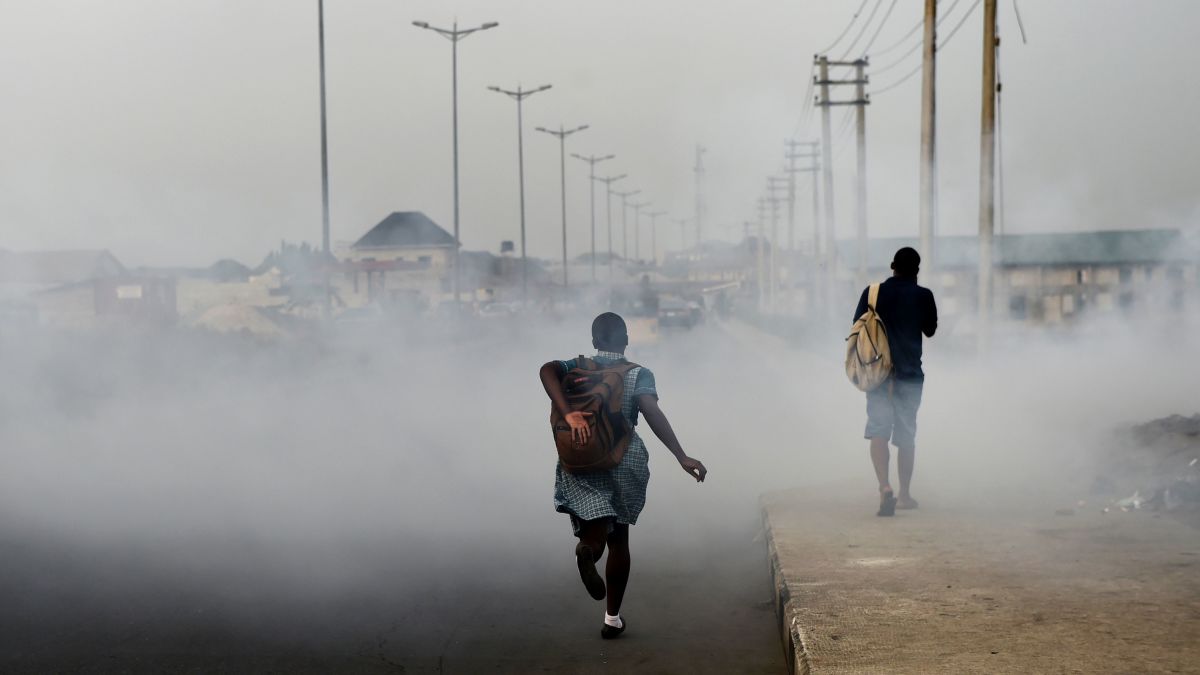African countries fail to meet WHO air pollution prevention guidelines

By Faridat Salifu
The 6th Annual World Air Quality Report has shed light on concerning trends regarding air pollution levels across the globe in 2023.
Drawing on data analysis from over 30,000 air quality monitoring stations situated in 7,812 locations spanning 134 countries, territories, and regions, IQAir’s air quality scientists conducted a comprehensive assessment for this year’s report.
Key revelations from the 2023 World Air Quality Report indicate that a mere seven countries succeeded in meeting the WHO annual PM2.5 guideline, which mandates an annual average of 5 µg/m3 or less. These nations comprise Australia, Estonia, Finland, Grenada, Iceland, Mauritius, and New Zealand.
Conversely, Bangladesh, Pakistan, India, Tajikistan, and Burkina Faso emerged as the top five most polluted countries in 2023.
Of particular concern is the fact that 124 out of 134 countries and regions surpassed the WHO annual PM2.5 guideline value, underscoring the pervasive nature of air pollution challenges worldwide.
Africa notably remains underrepresented in air quality monitoring endeavors, with a considerable segment of the population lacking access to crucial air quality data.
Climate conditions and transboundary haze emerged as significant contributors to elevated PM2.5 concentrations in Southeast Asia, where nearly every country witnessed a surge in pollution levels.
Central & South Asia bore the brunt of pollution, hosting the top 10 most polluted cities globally, with Begusarai, India, ranking as the most polluted metropolitan area.
In the United States, Columbus, Ohio, claimed the dubious distinction of being the most polluted major city, while Beloit, Wisconsin, emerged as the most polluted city overall. Conversely, Las Vegas, Nevada, stood out as the cleanest major city in the U.S.
Canada surprisingly topped the list as the most polluted country in Northern America, with its 13 most polluted cities situated within its borders.
The report underscores the pivotal role of air quality data in catalyzing action and enhancing air quality standards, emphasizing the imperative for intensified monitoring efforts worldwide.
Frank Hammes, Global CEO of IQAir, emphasized the life-saving potential of air quality data and called for unified efforts to address the global air pollution crisis.
Aidan Farrow, Senior Air Quality Scientist at Greenpeace International, echoed these sentiments, stressing the urgent need for international cooperation to combat the pervasive threat of air pollution, particularly its disproportionate impact on vulnerable communities.
In conclusion, the report serves as a sobering reminder of the widespread health risks posed by air pollution and underscores the urgent need for effective measures to mitigate its detrimental effects.
